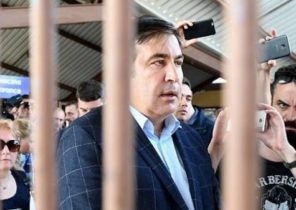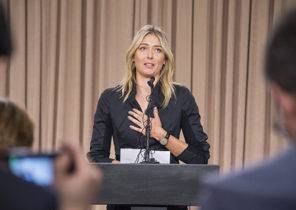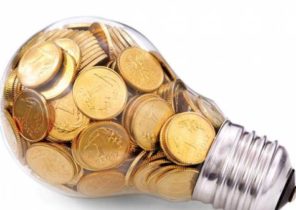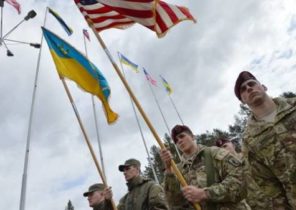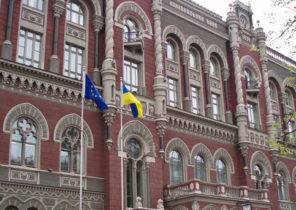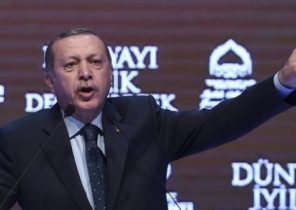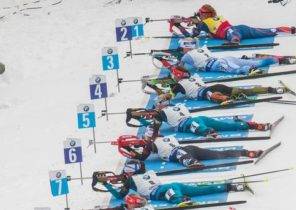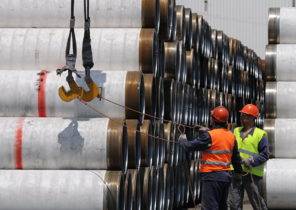
In 1990-ies on the shores of lake Geneva was established hundreds of companies for sale of wealth of the former USSR on the global international markets. Oil, grain and metals brought a fortune to the Swiss Commerce. The fourth part of the excursion into the history of the commodity industry in Switzerland.
It could be called Swiss Moscow. Far from the Volga steppes and the Kremlin towers Geneva for 20 years, is the world capital for trade Russian oil.
“The wealth of the city here,” said a few years ago a British lawyer and specialist in trade in raw materials Jeremy Davis (Jeremy Davies). “The success of Geneva site has become a to trade Russian oil,” confirms a former member of the government of the Canton.
From the figures head is spinning. In 2002 Yukos (then the company was the leader of the Russian petroleum industry) claimed that he had sold through his, then just created by the Geneva representative office, oil, worth more than $ 3 billion. In 2015 traders Litasco (subsidiary of LUKOIL) sold in Geneva 165 million tons of oil and oil products (3.2 million barrels per day) worth more than $ 40 billion. According to the 2012 estimates, 80% of sales of Russian oil accounted for the Geneva region. The situation remained unchanged until now. Such a geopolitical oddity is due to a long and rather unusual history.
Trade the East-West
Russian-Geneva idyll — deep roots. In 1910 the Russians had one-third of the students of Swiss universities, Lausanne, this figure reached almost half, reminds the Professor of modern history at the University of Lausanne Guex sébastien (Sébastien Guex).
During the cold war anti-communism, Switzerland has been hostile to the USSR, however, continued to play an important economic role for the ideological enemy. In the 1970-ies the Union massively imported Western wheat to supply its population. His monopoly “EXPORTKHLEB” to buy grain from middlemen in Geneva, Switzerland. In particular, she worked with André & Cie, which specialized in the trade of the East-West, and Tradax, a subsidiary of American company Cargill.
Anyway, the best relations with Moscow have formed Continental Grain (Conti), a competitor of Cargill. According to legend, in the summer of 1971, its founder, Michel Fribourg (Michel Fribourg) and representatives of the USSR caught in a storm when negotiating on a yacht off the coast of Corsica. Saved in the shipwreck allowed to form lasting friendships and business relationships.
The solution is to leave the
Continental Grain transferred subsidiary trading company Finagrain from Paris to Geneva, because the negotiations of France with tight control over operations was too difficult. One of the leaders of Conti in the period recalls the first large shipments of American wheat and corn in the USSR in 1973. “Had to generate huge trains to transport such huge amounts of grain, — he recalls. — Besides, it was necessary to keep everything in secret to avoid a surge in grain prices and transportation”.
According to him, Geneva became the European center of the company because Switzerland was a place where the East and the West: “People from the East was much easier to obtain permission to travel in Switzerland than in the US or London. Besides, it was the time of detente: the trade was supposed to promote peaceful relations, and Geneva was the place where it all happened.”
However, in 1991 the Soviet Union collapsed and there was chaos everywhere. Monopoly like EXPORTKHLEB disappeared. Their place was taken by young businessmen, regional warlords and criminal groups, who fought for raw materials and industrial assets: mines, warehouses, ports, factories.
One of which appeared at the time novices was Mikhail Prokhorov, the oligarch, and future owner of “Norilsk Nickel”. “As it is, many of these people were young, imported computers in Russia, went to holey sneakers and could rely on large families in the international Diaspora, says Olivier Longshan (Olivier Longchamp) of specializing in raw material NGOs Public Eye. — They bought the factories for a pittance, using a voucher system. They had no access to international markets, and they sold cheap. They had to export in order to generate capital. Here is a very important personal connection. Sometimes they were formed with the Swiss through the contacts of Soviet times”. As Mikhail Prokhorov, a famous oligarch Roman Abramovich, posted a first trade company in Switzerland from the beginning of his financial rise.
At first, these Russians had no money, no business contacts abroad, and they sell the products directly from the factory. I had to go. The Geneva intermediaries have sent their representatives to the most remote regions in order to understand who controls what and that makes.
Driving force of Finance
“Every major company was a man like me, — says one of these agents. — In some ways it was detective work. I needed to find who to speak to, address, company, to introduce myself, because before, they never heard of us, Sometimes I have the impression that I am the first foreigner in these parts since the days of Genghis Khan.”
After signing the contract, the Swiss traders are 80-90% funded the delivery of cash-strapped producers in exchange for documents confirming that the item is loaded on the train and ready to export.
Later, businessmen from the former Soviet Union have created their own company in Switzerland. Often, it was the offshore structure from the British virgin Islands. “At that moment, a great many companies — it is Worth noting that in Switzerland the financing was very cheap, whereas in Russia the rate was 20%. Structure of the British virgin Islands opened bills to get financing in a very serious volume. At the time the financiers were the driving force. BNP followed a very aggressive course from the beginning 2000-ies in Russia, Ukraine and Kazakhstan”.
Coming from these countries, the money did not smell, and the system of combating laundering wore rudimentary in nature. “UBS opened accounts on entire wagons of the Russians who came to Geneva, — says an employee of the Bank. — Questions nobody asked, and only the documented information was marked “oil trader”. No one could verify or explain. The whole business went through offshore companies without any taxation.” Great news for the Russians, who were horrified by the thought that they might lose the resulting state due to the collapse of their currency or declared by the Kremlin expropriation.
The appearance of the giants
Anyway, the appearance of grain traders, fertilizer and metals in the late 1990’s was just beginning. In 2000, Geneva got their hands on the oil. The first of the Russian companies was modest in 1992, Lia Oil SA, which is engaged in the sale of Chechen oil. Then came the turn of Yukos billionaire Mikhail Khodorkovsky, who at first was acting through an opaque network of offshore companies. They were followed by dozens of others, such as “Norilsk Nickel” Michael Prokhorov and oil trader Gunvor.
Anyway, the most significant event was the emergence of “LUKOIL”, who was present in Geneva since 1994. In 2001, the second at the time oil producer in the world (after Exxon) decided to establish in the heart of the city headquarters of the subsidiary Litasco. To this end, he began to entice people from competitors. “The Russians came to Geneva, because people here knew the work and it was easy to find the right staff”, explains oil tycoon, Jean-Claude, Gandur (Jean-Claude Gandur), part of the staff which went to Litasco. Later, another team of the founder of Addax Petroleum moved to Gunvor.
So Geneva became the capital of Russian, Kazakh and Azeri oil. Cantonal authorities actively contributed to it. “At that moment there was a real political will to involve them — says a former member of the local government. — Do not forget that in the early 1990-ies in Geneva, the deficit amounted to an average of 500 million francs per year. The Ministry of economy has made the increased presence of international companies in this dogma, and guided the enormous efforts on its promotion. The reflection time was because the situation was critical”.
In Switzerland, the Russians waited for the friendly atmosphere, which later attracted traders from all over the world. “They have roots in Switzerland because of the tranquility in the area of taxes and law, the economist and the expert on commodity markets Salman Philippe (Philippe Chalmin). In Switzerland there is an old tradition to close the eyes on certain activities”. And to offer foreign investors the most competitive and flexible tax system in the world.
